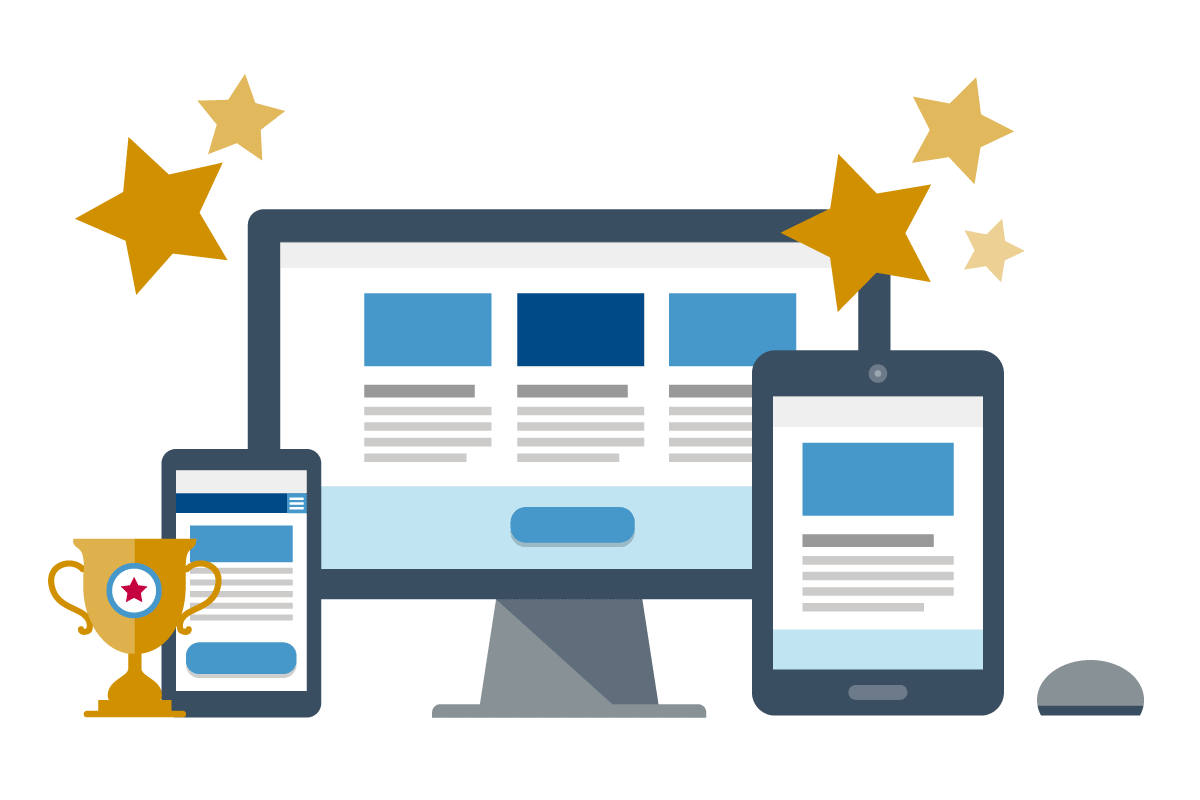How to Choose a Web Design Company

Your online presence is more important than ever, so if your website is looking out of date it might be time for a website redesign. If you don’t already have a web design agency you’re happy with, how do you choose the right firm to help update your site?
Start with some reconnaissance work. Perform online searches to find web design companies in your area and ask professional peers for references. Start making a list of websites you like, whether they are in your industry or not, and find out who built each of your favorite sites.
Once you have a short list of possible web design agencies, take the following steps to ensure you choose the right partner for your project.
- Research the company. The web design agency you choose to build your site will truly hold the future of your company in its hands, so it’s important to choose a company that is well-established, experienced, and trustworthy, with an excellent reputation and a demonstrated expertise in web design and related skills such as web development, SEO, and digital marketing. Visit the website for each prospective web design agency to see how long they’ve been in business, what services they provide, and what level of experience and specific skills their team members offer. Also check the website for customer testimonials or case studies, and read reviews on third-party sites such as Google, Facebook, Better Business Bureau, Yellow Pages, and Trustpilot.

- Check out the prospective agencies' own website. Many web design firms will have a portfolio section on their website so you can easily see some examples of their work. Are the websites they've developed professional-looking and easy to use? Do their featured clients seem comparable to you in terms of size? Do the sites seem similar in scope? Do the sites have functionality you'll require for your own site?
- Check out some of the websites they’ve built. Many web design firms will have a portfolio section on their website so you can easily see some examples of their work. Review these samples with the following questions in mind: Are the websites they've developed professional-looking and easy to use? Does their website design seem to span the gamut in terms of style, or do the sites look like they’ve been built from a template? Do their featured clients seem comparable to you in terms of size and scope? Do the sites have functionality you'll require for your own site? Are there examples of websites in your industry?
- Make a list of must-haves for your website. Having a list of non-negotiables before you start talking to agencies will make the vetting process much easier, prevent you from forgetting any priorities during the sales process, and help you quickly narrow down your list of prospects to just the ones that check every box. In addition to basic requirements (i.e., WordPress experience, responsive design, ability to integrate with third-party systems, specific functionality such as online payments or registration, etc.), create a second wish list for things that aren’t deal-breakers but that might make you lean toward one agency over another (i.e., logo design, secure hosting, content creation, ongoing digital marketing, experience with print design, etc.).
- Know your timeline and budget. Having a firm idea of how much you can pay for a new website and when it must be completed is essential to finding the right web design partner. On the financial side, establish a cost range rather than a single number, and be sure to ask what is included in the project estimate and how/how much you will be charged for fees and services that are not included. Your timeline is another important consideration. If you have a hard deadline for the site launch, such as before a major industry event, product launch, or sales cycle, be sure to communicate that deadline to agency candidates and ask them for an honest assessment of whether they can meet the deadline, any challenges they anticipate with your timeline, and what they will do if they are running behind.
- Make an initial call to talk about your project and set up a meeting. Pay attention to how they handle this introductory call—are they accessible and friendly? Do they ask questions about your company and the details of the project, or do they immediately launch into a hard sell? This is a company you should evaluate as a long-term agency partner, so chemistry is important. While the person who answers the phone might not be the one you end up dealing with the most (or at all) once you have signed on as a client, that person still reflects the overall personality of the company, so be sure it feels like a good fit.
Finding a web design partner that is the right fit for your business and your brand does take some work, but the more due diligence you conduct before signing a contract, the more likely you'll be happy with the agency relationship, the web design process, and the website they deliver when the project is complete.


